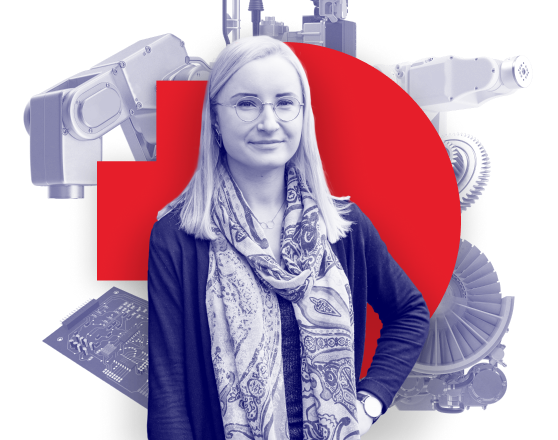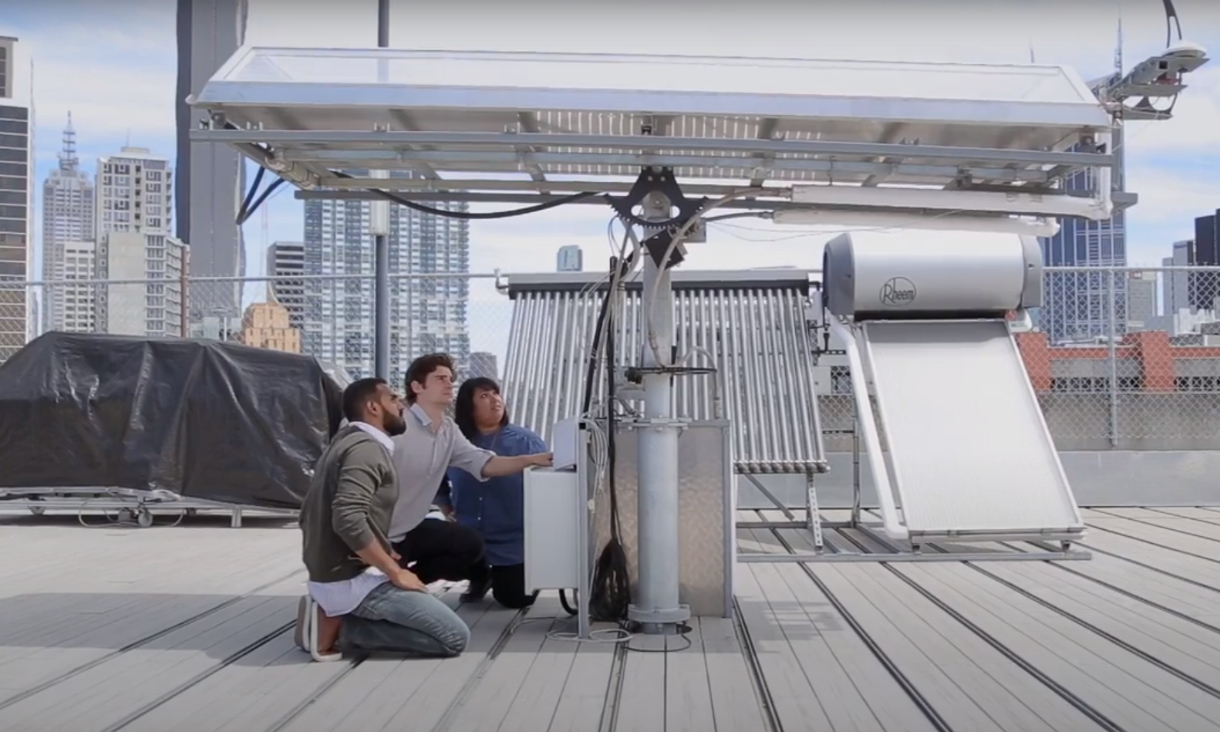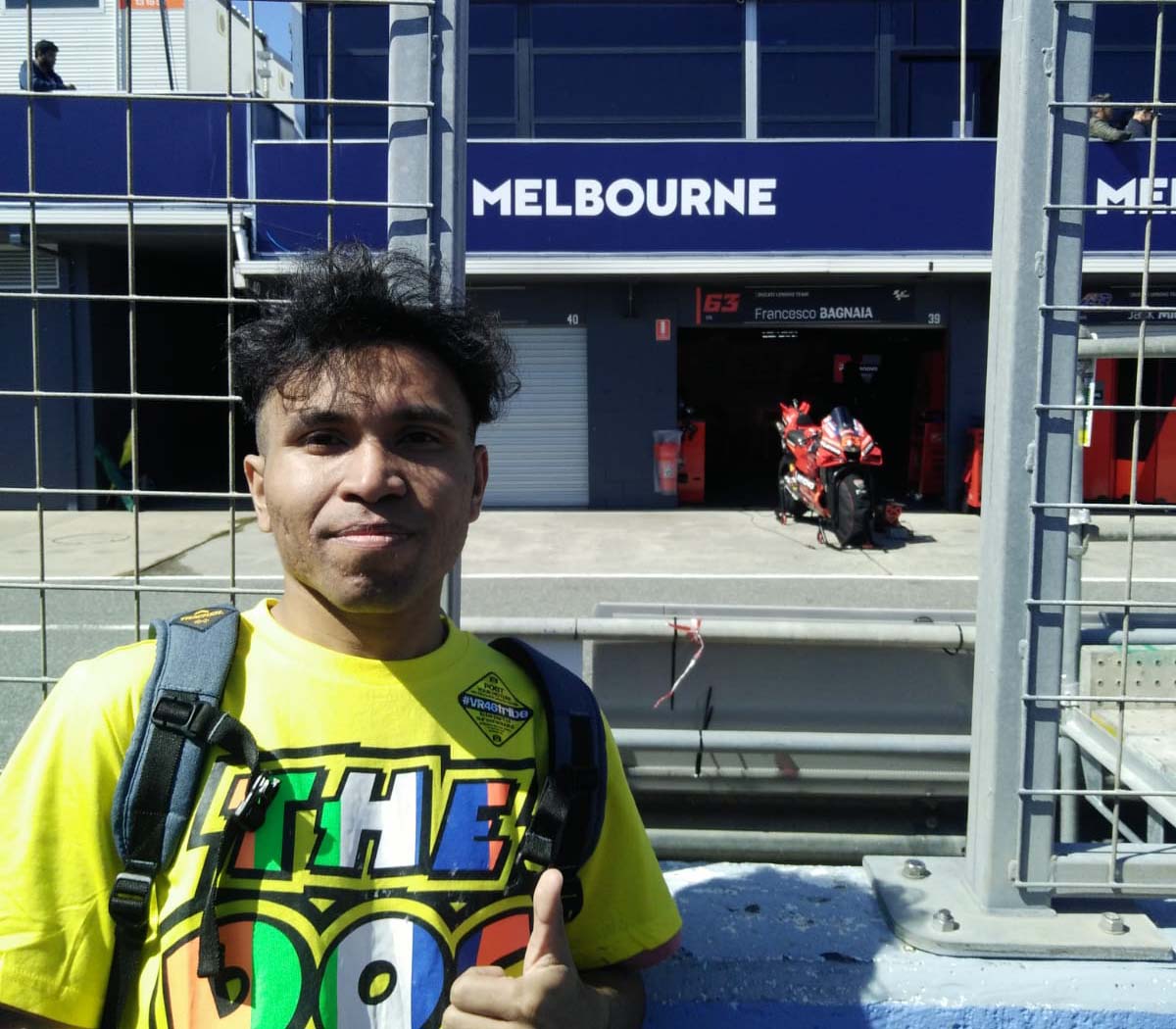(Background music)
Asma Mohamad Aris, Master of Engineering (Sustainable Energy) at RMIT University, speaking to camera in a lab: “I want something that is fun, something that is new, but also beneficial to my future.”
Darcy Denton, Master of Engineering (Sustainable Energy) at RMIT University, speaking to camera in a lab: “I guess I like the field of sustainable energy in engineering because it allows me to sue my skills in maths and science, whilst also creating some good.”
Asma, Darcy and Srirag sitting under large solar panel system on the roof.
Srirag Kerachan, Master of Engineering (Sustainable Energy) at RMIT University, speaking to camera in a lab: “I have done my Bachelor’s in electronics instrumentation, so I was looking at the starting phase for a PhD or getting into renewable energy sector.”
Srirag and Dr Shabani discussing over a gas bottle. Image of batteries. Image of model.
Asma Mohamad Aris: “Sustainable energy is not just saving the environment or learning about the environmental technology. It’s more than that. It’s like putting equations of social responsibility, ethics, even economic point of view, and not to forget the engineering aspect of the technology.”
Asma and Darcy discussing and pointing at solar panels. Footage of someone controlling a control panel.
Dr Bahman Shabani, School of Aerospace, Mechanical and Manufacturing Engineering speaking to camera in front of screens: “The program places the students in a very competitive position to grab international and local jobs. The strategy of this program in particular is just training work-ready students.”
Darcy, Dr Shabani and Srirag discussing and pointing at a model of a car on a table.
Asma Mohamad Aris: “I’ve got to learn like new technologies, new alternative energies. I believe in sustainable life and climate change, so sustainable energies sort of like bring all of these components under one roof.”
Asma, Srirag and Dr Shabani looking at batteries.
Dr Bahman Shabani: “As part of the program, the students do a project, a research project, and they’ve got the opportunity to go for whatever area that they are interested in.”
Asma, Darcy and Srirag with solar panels on the roof.
Asma Mohamad Aris: “My final year project, I did it with Professor Gary Rosengarten in designing and simulating the solar thermal collector systems for low energy residential building.”
Asma on the roof with solar panels.
Srirag Kerachan: “Most of our programs, we have a group project and a single project, so when we interact with these people, you sit down, you learn. It’s more of an interaction.”
Srirag talking in front of screens. Srirag, Asma and Darcy looking at screens with graphs on them.
Darcy Denton: “We have a number of guest lecturers that come in and talk about us from the industries. It’s great to see what people are doing in the real world, and where the actual jobs are.”
Darcy and Dr Shabani discussing in the lab and holding a gas bottle.
Dr Bahman Shabani: “Climate change is not a hoax. It’s happening now around the world. The demand for professionals working in this area is just growing and growing.”
Asma, Darcy and Srirag with solar panels on the roof.
Darcy Denton: “There’s a perception that somewhere in the future, we’re going to reach a point where renewable energy is viable. But I think we’ve already got to that point in a number of cases with the promise that renewables have world-wide and into the future. This is a field that people should move into. It’s great to get on board.”
Asma, Darcy and Srirag with solar panels on the roof. Footage of wind turbine.



